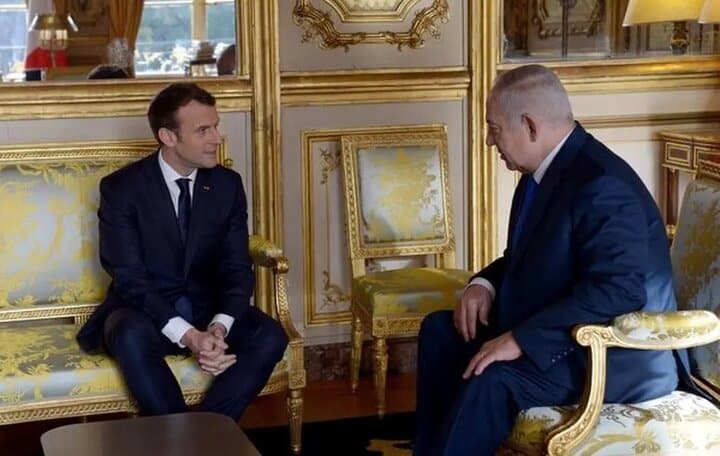Macron’s contradictory approach and double standard policy in the Gaza-Lebanon war.
In recent days, a rift has been brewing between French President Emmanuel Macron and Israeli Prime Minister Benjamin Netanyahu over the issue of the United Nations Interim Force in Lebanon (UNIFIL), which consists of nearly 1,000 French soldiers out of 10,000.
UNIFIL forces, which were deployed on the border between Lebanon and occupied Palestine after Hezbollah’s 33-day war with the Israeli regime in 2006, have been attacked by the Israeli war machine in recent days, which has killed residents of Beirut and neighboring villages, destroyed their headquarters, and injured several peacekeepers.
As these rifts continue and intensify, the French president has recently said that stopping the export of weapons used by the Israeli regime in Gaza and Lebanon is the only way to stop the conflicts. Paris has also recently refused to issue permits for Israeli companies to attend a maritime defense industry exhibition. An exhibition is to be held in France in November.
Sending $22 million in annual arms to the occupied territories
France has always had close ties with the Zionist regime. In the initial reaction to the October 7 attacks by Hamas, Macron expressed strong sympathy for the Zionist regime and promised to form a coalition to fight Hamas, but this idea was immediately rejected by the international community.
Macron has taken a critical approach as the number of martyrs in Gaza has increased, but even in adopting this approach, he is not consistent. During this time, despite all the criticism from public opinion and non-governmental organizations about sending weapons to Tel Aviv, we have witnessed the sending of French weapons to the occupied territories.
A month after the start of the Gaza war, a French Mistral-class warship was dispatched to the eastern Mediterranean to join two guided missile frigates, but Paris claimed that it had sent the ship to the region to help evacuate French citizens in occupied Palestine.

